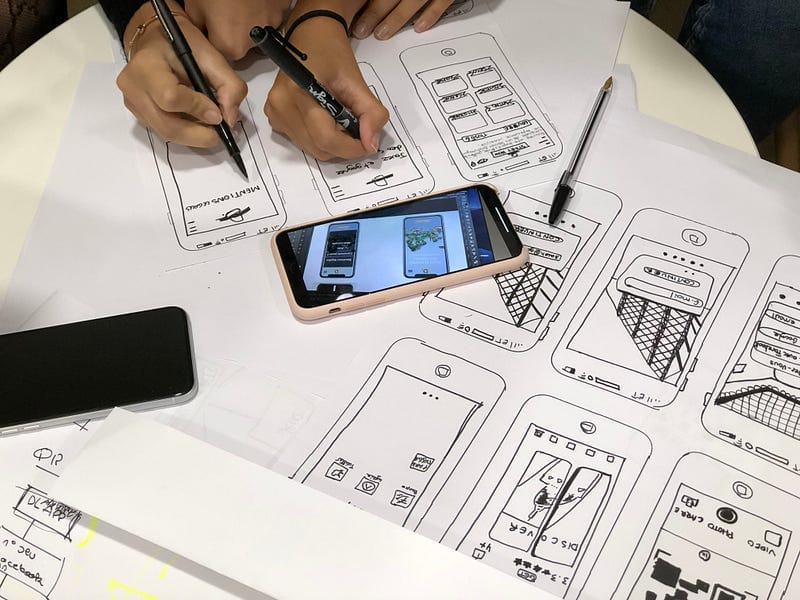Why we should enable and empower everyone to be designers and researchers
Design and research work will happen with or without us — we’re better off supporting this work than defending our craft

A few years ago in London, I attended one of the many great cross-government user research meetups that my colleagues in the UK government would regularly organize. At one point, we were asked to debate a “hot topic” among the people at our table, which for me were all strangers.
The hot topic was: Should non-researchers ever conduct research?
“Pfft, easy,” I thought. “Of course they should. What’s there to debate?” After all, user research is a team sport, right?
But I was surprised to find that everyone at my table, and pretty much everyone in the room, leaned very strongly towards the opposite opinion: they all felt that research was only to be done by people with specific training in research, who held the job title of user researcher. Research is too important, too sacred, to be trusted among business analysts and delivery managers and whoever else might try to do it. This kind of thinking connects back to my previous post on the two types of user researchers.
I never do well when I am outnumbered by strangers; my one feeble counter opinion was, “some product teams aren’t able to hire researchers. So surely some research done by someone else is better than none?”
“Absolutely not,” someone at our table said. “Bad research is worse than no research. It’s better to accept that you don’t know something than to build the wrong thing based on the wrong research.” Which … I totally agree with. I’ve seen bad research. I’ve probably even done bad research. Plowing ahead with incorrect assumptions can be far more damaging than saying, “I don’t know.” But I also believe that if we are working iteratively, the chance of building the wrong thing is low, even with bad research
Regardless, I think we’re missing the point.
Whether or not we agree with it, Research is already being done by non-researchers, just as design decisions are being made by non-designers. There’s probably nothing we can do to change that in the immediate future. So if we actually care about good research and design, we need to put our energy into helping those non-ux people do better work, rather than building up our castle walls.
—
This isn’t a new debate. Many other far more experienced people than I have weighed in on the “Democratization of Research/Design/UX” debate.
(side note: I don’t call it democratization because a) it feels jargony to me, b) the term democracy is too complex, loaded and open to interpretion and c) the opposite of democracy is dictatorship which I don’t think anyone on either side wants. So I call it what I mean by it, which is allowing non-researchers/designers to do research/design tasks.)
Jared Spool always sparks a lot of debate (for and against) when he talks about how everyone in the team is a designer. Nielsen Norman have weighed in on it. I really loved Mike Monteiro ’s thoughtful article, “Design’s Lost Generation.”
And yet — whenever I wade into this debate, I go back to my original thinking which is: What’s the point in talking about this, when it’s already happening? We’re better off working with the tide than against it.
In an ideal world, every service delivery team would have multiple, highly skilled researchers and designers. But we don’t live in that world, so we have to find ways to do our best in this one.
It doesn’t mean we can’t find ways to protect and professionalize research and design. But our immediate focus should be on meeting people halfway and doing the best we can with the resources we have available.
—
Here’s my own uncomfortable stake in this debate: If design and research were more professionalized, I probably wouldn’t be in this job. I’ve never had any formal training as a researcher, and only went to design school after I’d been doing the job for a few years. I learned on the job, through the generosity of others. And yet, I know I add a lot of value to the teams and communities I work in, and to the field of service design in government as a whole.
So, I think people should be given a chance to learn this work. Because, if we close the gates, who might we miss out on working with?
—
I want design and research to be valued and respected professions in the public service.
I also want anyone to feel like that can participate in and learn about and have a voice in this work. I want everyone to feel like this includes them, that it is an option for them. I want them to feel like they know what good looks like.
Maybe these are contradictions. Maybe we can’t have both.
But … maybe we can?


Comments ()